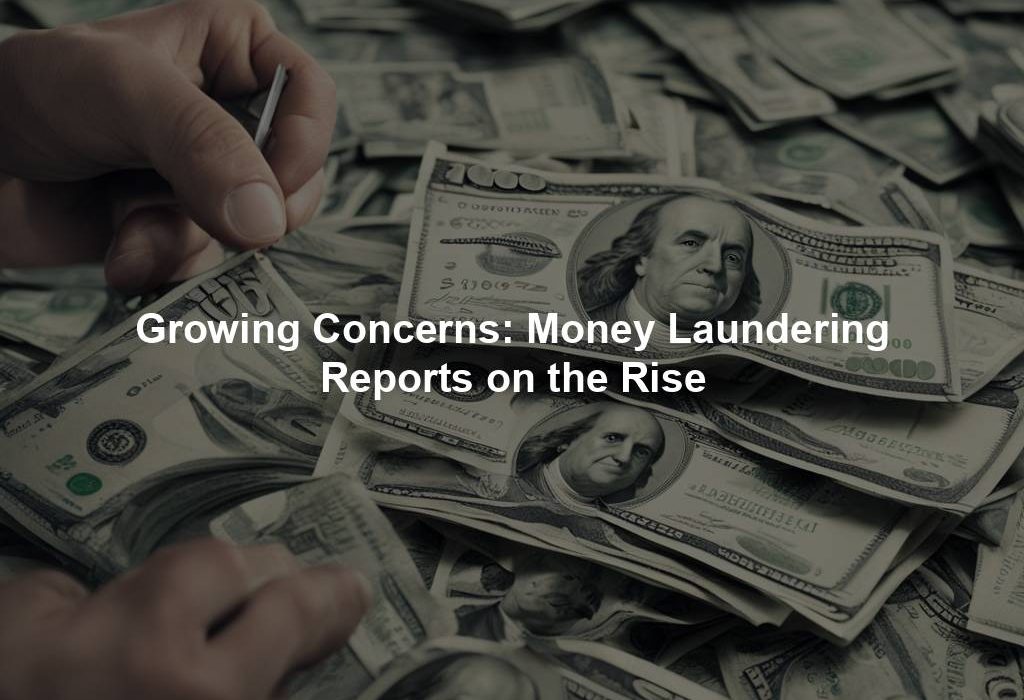Escalating Worries: Surge in Money Laundering Alerts
In recent times, the surge in reports concerning money laundering has sparked increasing concerns among governments, financial institutions, and law enforcement bodies globally. The rise in illicit activities, particularly through the avenue of money laundering, has necessitated a closer examination of existing systems to prevent and combat such practices.
Money laundering involves concealing the origins of unlawfully acquired funds, often by channeling them through a convoluted series of banking transactions or commercial dealings. The main objective of money laundering is to legitimize the proceeds of criminal endeavors, enabling wrongdoers to enjoy their unlawfully acquired wealth without detection.
As per the United Nations Office on Drugs and Crime (UNODC), the global scale of money laundering is estimated to range between 2% and 5% of the worldwide Gross Domestic Product (GDP), equivalent to approximately $800 billion to $2 trillion annually. This staggering estimate underscores the pervasive nature of money laundering within the global financial framework, presenting significant hurdles to authorities responsible for preventing and uncovering such illicit operations.
A primary concern associated with money laundering is its potential to facilitate a spectrum of other criminal acts, including but not limited to drug trafficking, human trafficking, terrorism funding, and corruption. By enabling criminals to profit from their illegal pursuits, money laundering fosters the longevity of criminal syndicates and erodes the rule of law in societies worldwide.
Various methods are employed by criminals to launder money, such as the utilization of shell companies, offshore bank accounts, and intricate financial transactions. Through these means, criminals can obscure the origins of their illegal funds and integrate them into the legitimate economic system, complicating efforts by authorities to trace and confiscate the fruits of criminal activities.
In recent years, numerous prominent cases of money laundering have captured international attention, such as the Danske Bank scandal. This scandal involved billions of suspicious dollars moving through the bank’s Estonian branch between 2007 and 2015, shedding light on vulnerabilities within the global financial network regarding money laundering and highlighting the necessity for heightened regulations and supervision to combat such practices.
In response to the escalating threat posed by money laundering, governments and financial entities have taken measures to fortify anti-money laundering (AML) regulations and foster collaboration across nations and agencies. The Financial Action Task Force (FATF), an intergovernmental organization setting international standards for combating money laundering and terrorist financing, has played a pivotal role in propelling these endeavors.
In 2019, FATF revised its recommendations regarding money laundering and terrorist financing to address emerging risks and vulnerabilities in the global financial system. The updated recommendations encompassed steps to enhance the transparency of beneficial ownership details, bolster the supervision of virtual assets and prepaid cards, and amplify the efficacy of AML/CFT (Combating the Financing of Terrorism) oversight.
Despite these endeavors, challenges persist in effectively combatting money laundering. One significant hurdle is the emergence of new technologies like blockchain and cryptocurrencies, which furnish criminals with fresh avenues to launder money and evade detection. The decentralized nature of these technologies complicates authorities’ efforts to track and monitor transactions, posing a substantial risk to the financial system’s integrity.
Another obstacle is the inadequate coordination and cooperation between nations and agencies in combating money laundering. Given that criminal outfits operate across borders, it is imperative for authorities to collaborate in thwarting and uncovering illicit financial activities. Nevertheless, information sharing gaps and coordination lapses impede the efficacy of AML measures at a global level.
To address these challenges, governments and financial institutions must persist in investing in technology, training, and resources to enhance their capacity to prevent and expose money laundering. Additionally, concerted efforts are needed to enhance information exchange and collaboration on an international scale to disrupt the networks of criminal entities engaged in illicit financial operations.
In conclusion, the mounting apprehensions surrounding money laundering underscore the necessity for a collective endeavor by governments, financial institutions, and law enforcement bodies to combat this global menace. As money laundering activities continue to evolve in scale and sophistication, it is vital that authorities remain vigilant and proactive in their pursuit to prevent and detect illicit financial operations. Through fortifying regulations, fostering collaboration, and harnessing technology, a collaborative approach can be adopted to fortify the integrity of the global financial system and shield society from the detrimental repercussions of money laundering.




